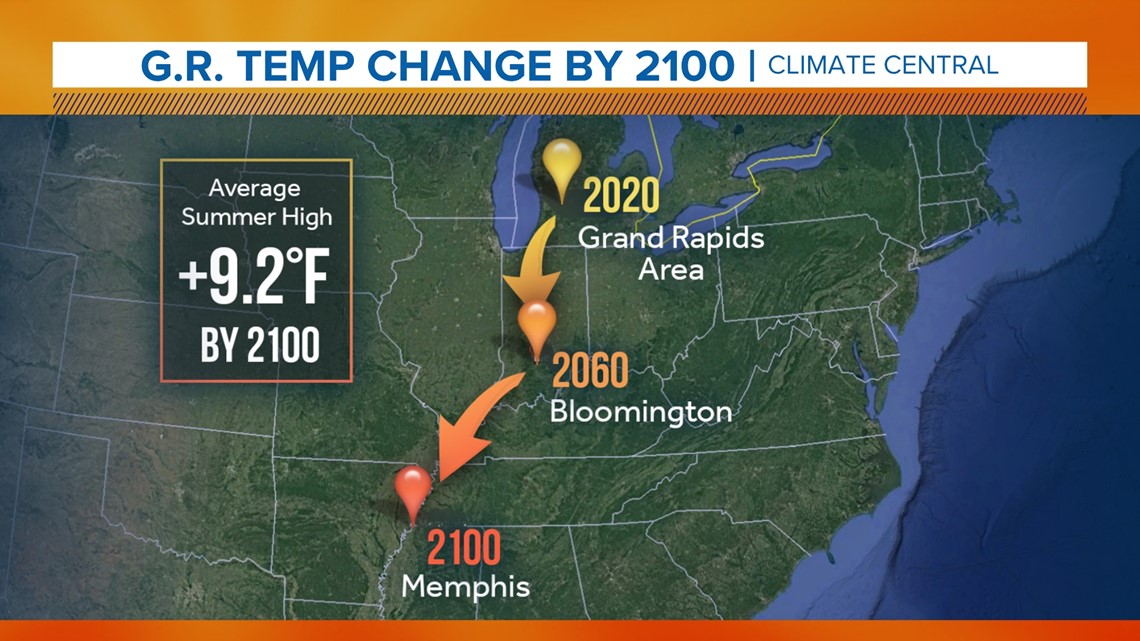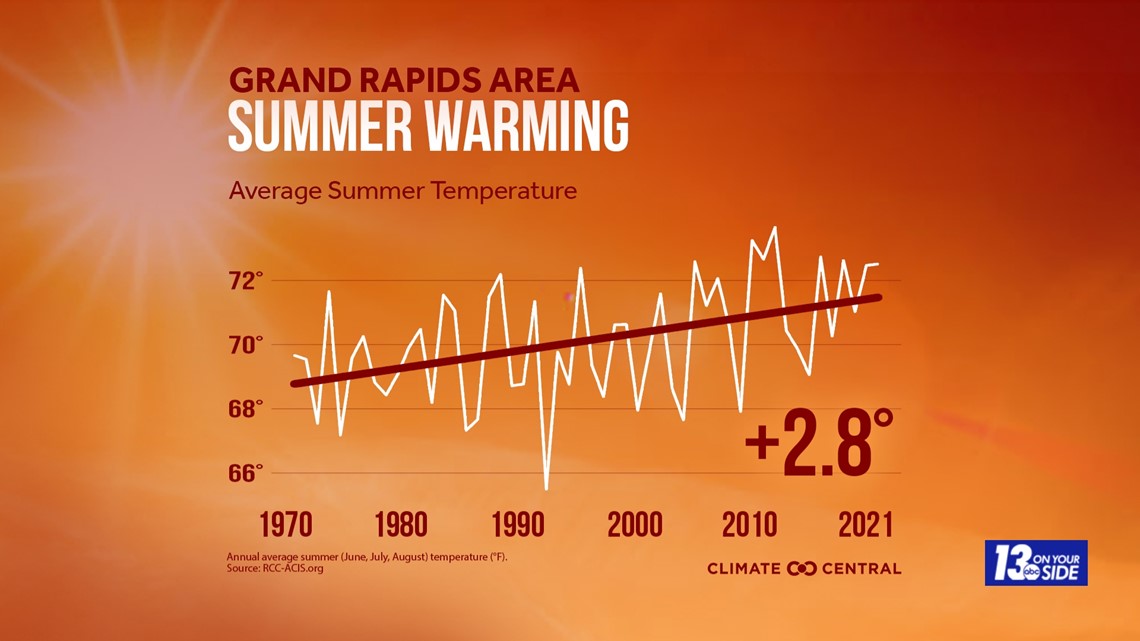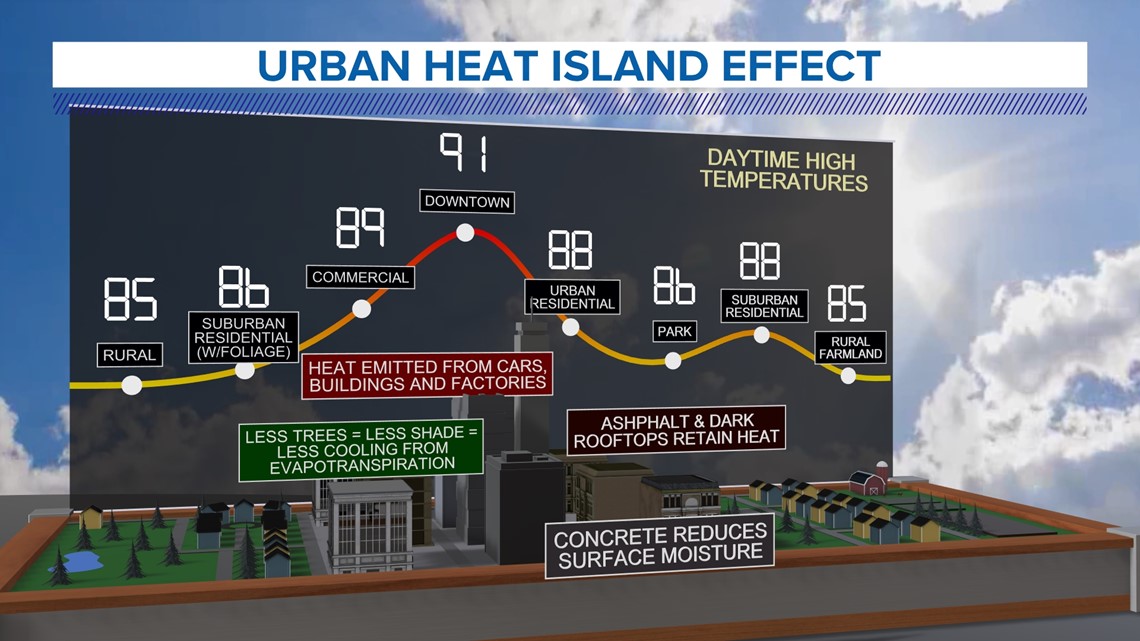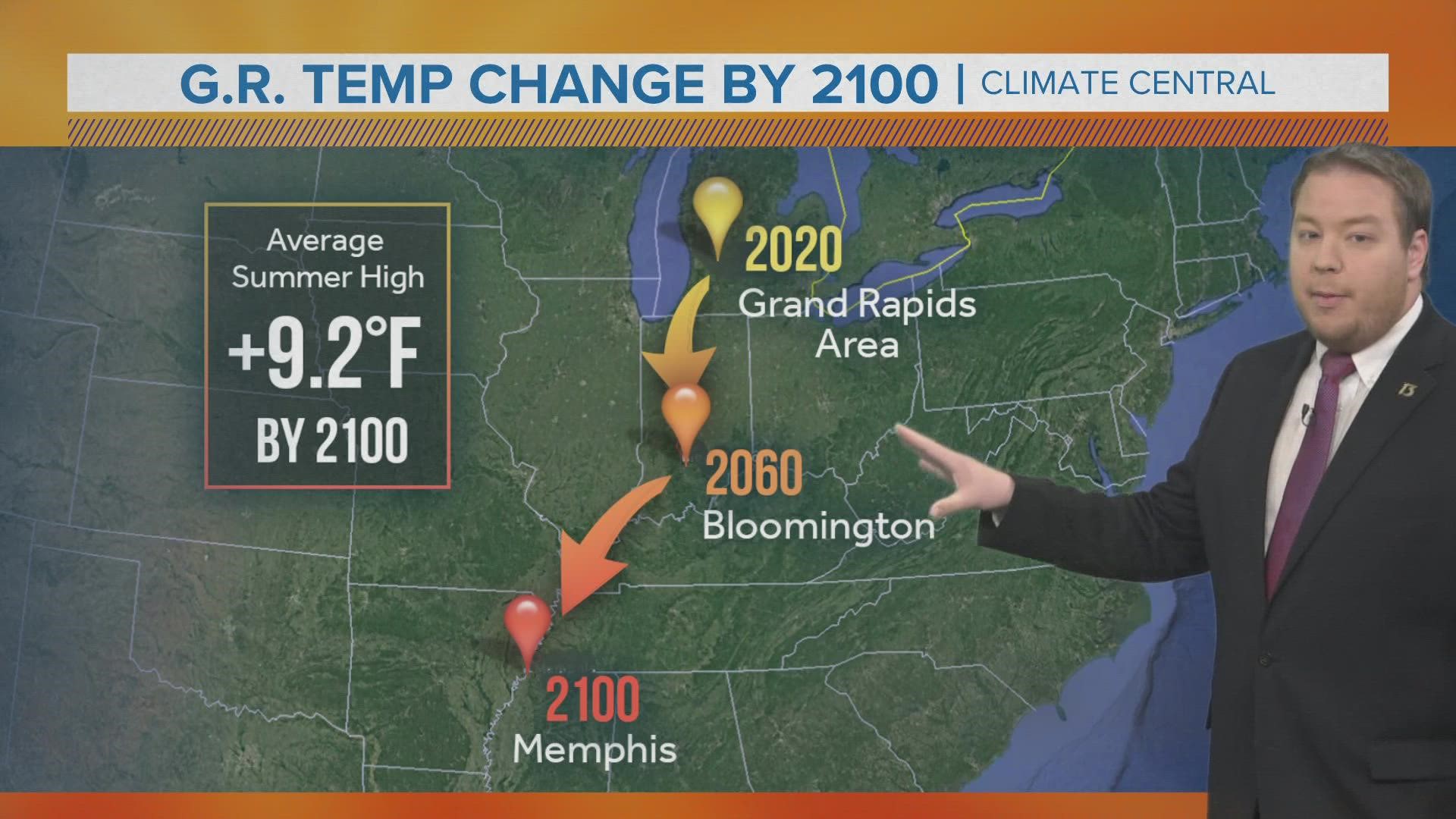GRAND RAPIDS, Mich. — Summer 2022 has been pretty average all things considered. While we've had our ups and downs since June, the season as a whole is almost dead average for our combined high temperatures. However, if climate change continues at its current rate, by the year 2100 our average summer highs could be feeling a lot more like Memphis does today!
An analysis done by Climate Central of some 247 cities around the US shows that most will see a rise in average summer high temperatures through the end of the century. The average high-temperature rise by 2100 across these cities is 8°F. 16 of the cities examined will reach summer high temperatures that are most comparable to the Middle East today!
In West Michigan, we are expecting to see around a 2 to 3-degree rise by 2060, which would make our summers comparable to Bloomington, Indiana today. By 2100 we could see a 9.2-degree rise in our average high temperature during the summer. This would make our summers resemble Memphis currently, with average temperatures topping the 90-degree mark!


There is solid data to back up this pattern as we have seen consistent warming since the 1970s. On average we are now seeing 15 more days above average each summer and have seen average temperatures rise by 2.8 degrees since 1970.


The urban heat island effect is also resulting in summer temperatures in the city getting hotter and hotter. With expanding areas of dense buildings and paved surfaces, temperatures in downtown and more densely populated areas of Grand Rapids can be as much as 6 degrees hotter than in less tightly packed zones.


Of course, these trends mentioned above all assume we do nothing to combat climate change or improve the ability of cities to stay cool during the summer months.
The more changes the better we can make now the less of an impact we will need to combat in the future.
Heat is the number one weather killer according to NOAA, so the more extremes we can avoid the better our future will be for all!
-- Meteorologist Michael Behrens
Follow me on social media! Facebook Meteorologist Michael Behrens, Twitter @MikeBehrensWX, and Instagram @MikeBehrensWX.
Email me at: MBehrens@13OnYourSide.com
Have a 30-second video or still photo to share? We'd love to share it with everyone! Email your image to Weather@13OnYourSide.com or post it to our 13OnYourSide Facebook Page.
►Make it easy to keep up to date with more stories like this. Download the 13 ON YOUR SIDE app now.
Have a news tip? Email news@13onyourside.com, visit our Facebook page or Twitter. Subscribe to our YouTube channel.

